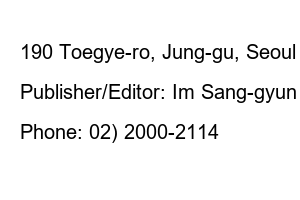사전채무조정Font size settings
go
go
go
go
TOP
comment
Recommended Articles
Change language
Font size settings
go
go
go
go
If you are a vulnerable borrower who has delinquent or is at risk of delinquent loan payments, you may want to consider the Credit Recovery Committee’s (New Rehabilitation Commission) ‘Rapid Debt Adjustment Special’ and ‘Advance Debt Adjustment Special’ programs (Rapid/Advance Debt Adjustment Special).
This is because the special operating period for rapid and advance debt adjustment has been extended to ease the repayment burden on vulnerable borrowers due to high interest rates.
According to the Financial Services Commission on the 4th, the special operation deadline for rapid and advance debt adjustment will be extended until the end of December.
Lee Sang-woo, head of the Strategy Planning Department of the Shinbok Committee, explained the purpose, saying, “Considering the demand for debt restructuring of vulnerable groups due to high interest rates, etc., we have extended the special operating period for rapid and advance debt restructuring to support preemptive recovery.”
Director Lee said, “Among those who applied for the rapid debt adjustment special treatment, the level of loan contract interest rate reduction will be expanded from 30-50% to 50-70% only for those who are recipients of basic livelihood security with significantly low repayment ability, the disabled with severe disabilities, and the elderly over 70 years of age. “I do,” he added.
Since April of last year, the Financial Services Commission has announced that it will temporarily operate special provisions for rapid and advance debt adjustment to reduce the debt burden of low-credit and low-income borrowers.
The special case for rapid/advance debt adjustment is a method of lowering the loan agreement interest rate or reducing the principal amount.
First, those eligible for special support for rapid debt adjustment are overdue debtors who are 30 days or less in arrears or have no delinquency but are at risk of delinquency.
Those at risk of delinquency include those with a personal credit score in the bottom 20% or lower (however, those with a credit score exceeding the bottom 10% have an annual income of 45 million won or less), the unemployed, those on unpaid leave, and business closures.
If eligible, the interest rate agreed on the existing loan will be reduced by 30-50% without adjusting the principal by comprehensively considering the repayment ability such as available income (income – recognized cost of living) and assets compared to debt.
In addition, we support extending the installment repayment period up to 10 years in accordance with monthly disposable income.
Those eligible for special support for advance debt adjustment are debtors who are overdue for 31 to 89 days, recipients of basic livelihood security, severely disabled people, and seniors over 70 years of age who earn less than 150% of the minimum cost of living.
If you are eligible, you will receive a full reduction in interest and overdue interest equivalent to a personal workout, and interest-free principal repayment in installments within a maximum of 10 years.
As this is support for cases where repayment ability has been significantly lost, principal reduction of up to 30% is also supported, taking into account the possibility of debt restructuring.
As a result of the Financial Services Commission’s analysis of the effects of those eligible for the rapid and advance debt adjustment special program, the average interest rate for vulnerable groups such as those with low credit and multiple debtors decreased by 6.5 percentage points from 15% per year to 8.5% per year after the implementation of the special rapid debt adjustment program.
In the case of special support for advance debt adjustment, after implementation, those eligible benefited from an average principal reduction of 28%.
Applications for special provisions for rapid and advance debt adjustment can be made by visiting 50 financial integration support centers nationwide or through the Cyber Counseling Department of the Shinbok Committee or through a dedicated app.
On the other hand, if the assets are large compared to the total debt or the available income is excessive compared to the size of the debt, special support for rapid and advance debt adjustment may be rejected.
If you liked this article, please click like.
As of 2024-06-12 09:19
2024-06-11 10:23:38
2024-06-11 06:02:37
2024-06-10 07:35:23
2024-06-10 19:42:09
2024-06-11 22:15:18
2024-06-11 23:04:43
2024-06-11 21:58:47
2024-06-10 21:59:06
2024-06-11 07:10:56
2024-06-11 23:07:56
Maekyung.com Co., Ltd.
190 Toegye-ro, Jung-gu, Seoul
Publication date: 2009.11.30 / Registration date: 2009.11.30
Publisher/Editor: Im Sang-gyun
Internet newspaper registration number: Seoul A01043
Phone: 02) 2000-2114

